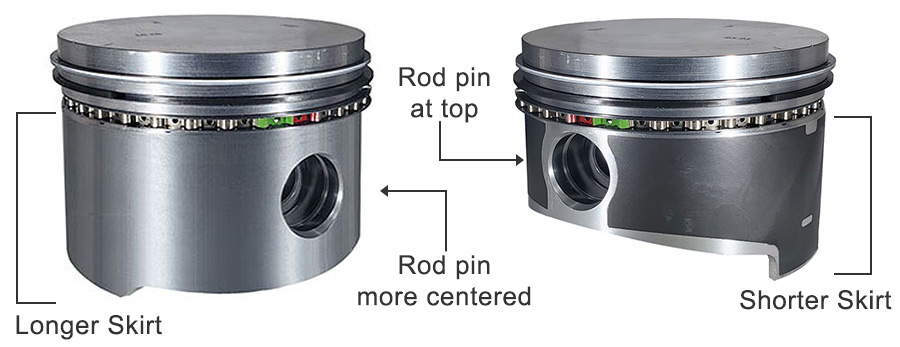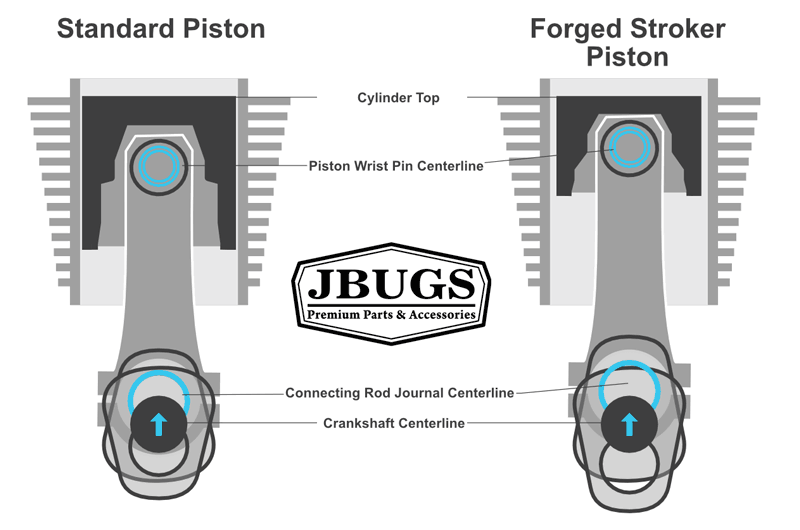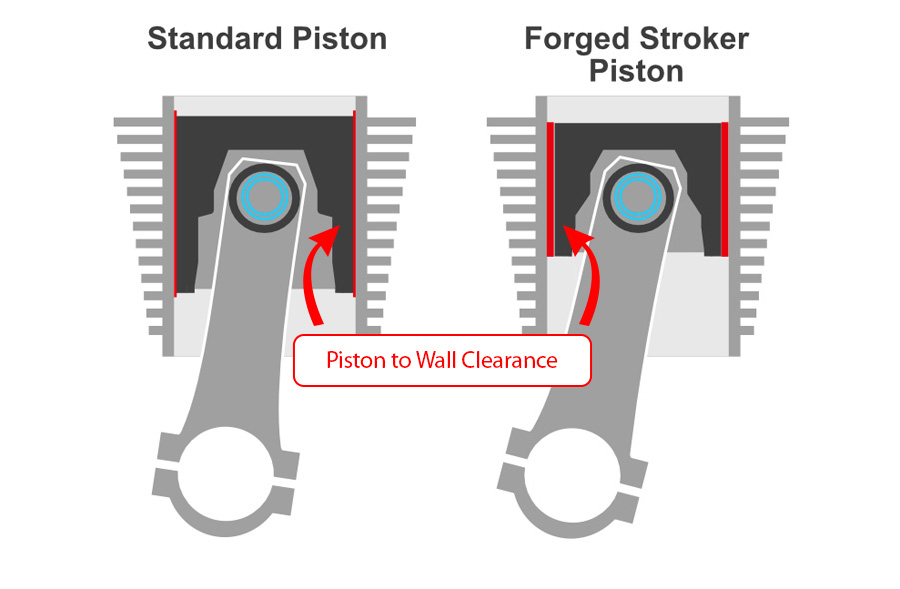The Pistons

Standard piston head on left, Stroker piston head on right.
At JBugs, our stroker pistons are forged for toughness and fatigue resistance which makes them well suited for high power applications. All our stock pistons are hypereutectic cast (hypereutectic designates over 12.5% silicone alloy content) and are designed for everyday use without much abuse. Silicone content matters because it trades how tough the piston head is, in exchange for minimal expansion under use.
There is little difference in cylinder barrels for VW piston & cylinder kits so we will ommit cylinder barrel comparisons in this article. Stroker piston heads are shorter than their stock counterparts, which allows them to be pushed further into the cylinder barrel (with use of a modified crankshaft) on the intake and power strokes.

Stroker piston heads expand more and require a larger piston-to-wall clearance.
Since forged pistons have a higher iron and lower silica content, the piston expands more when in use. Forged pistons require a larger piston-to-wall clearance gap in order to prevent piston seize. While it's not typical of all stoker pistons, the larger gap makes some stroker engines prone to "piston slap" as the piston rocks during cold starts, gradually wearing down the piston head.

Cast piston heads have higher silica content and expand less, allowing them to be built with a tighter piston-to-wall clearance.
If all you desire is a reliable car we don't recomend stroker pistons. Cast pistons work just fine, cost less, and are the pistons we use in our daily drivers.







